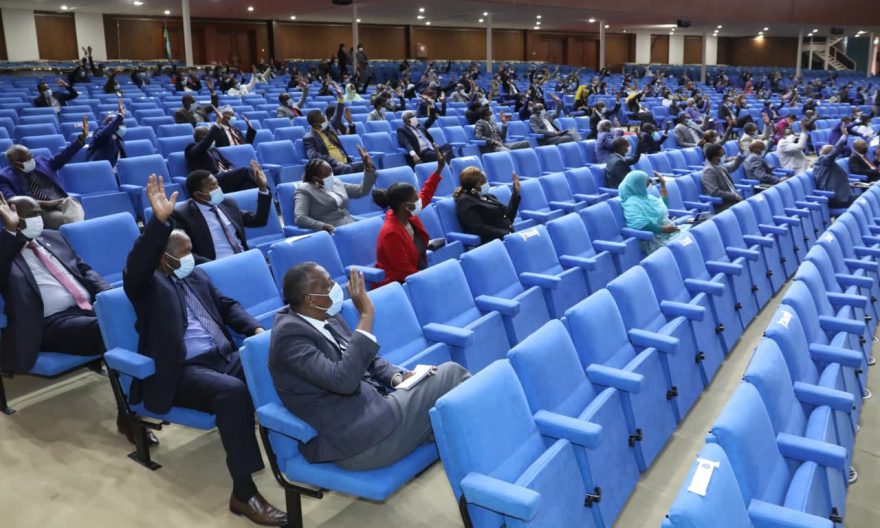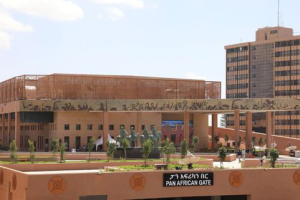
In near future, Ethiopians will designate a new lawmaking body following the upcoming national elections. As the country is one of the nations of the planet entertaining parliamentary form of government, better to cite some facts about the house and its members.
It is crystal clear that a parliamentary form is a system of government having the real executive power vested in a cabinet composed of members of the legislature who are individually and collectively responsible to it. Besides, a parliamentary system or parliamentary democracy is a system of democratic governance of a state where the executive derives its democratic legitimacy from its ability to command the confidence of the legislature, typically a parliament.
The Ethiopian Parliament is an expression of the faith that the people of the country have in principles of democracy. These are participation by people in the decision-making process and government by consent. The Parliament in our system has immense powers because it is the representative of the people.
Comprising designated individuals representing all electorates across the nation as per the seat stipulated in the constitution, the House of Peoples Representatives (HPR), technically called the law making body, is duty bound to formulate laws with which all citizens comply and discuss top national agenda.
The Ethiopian parliament has two houses, namely the House of Federation (HoF)—which is the upper house consists of members designated by regional governments representing the different ethnic or nationality groups. It has formal powers only to deal with constitutional issues and ethnic or nationality matters and the House of Peoples’ Representatives (HPR)—the lower house, which has consisted of 547 members, popularly elected on the basis of universal suffrage and by direct, free, and fair elections held by secret ballot and is the main legislative body of the country.
Peoples of Ethiopia have equal say on matters of their collective sovereignty. The parliament has acknowledged the supremacy of the Constitution, separation of state and religion, respect of fundamental rights (including the Universal Declaration of Human Rights), and principles of good governance. It has also created a defense force that is loyal to the Constitution and through it to the Ethiopian public.
The Federal Legislature is made up of two Chambers – the House of Peoples’ Representatives and the House of Federation with a five year term. The House of Peoples’ Representatives (HPR) is the sole legislative body and therefore, the highest authority of the Federal Government. Members of the HPR are elected by the people at district level. The districts are based on population.
As stipulated in 54(1) of the Federal Democratic Republic of Ethiopia (FDRE) Constitution, members of the house of peoples’ representatives shall be elected by a people for a term of five years on the basis of universal suffrage and by direct, free and fair elections held by secret ballot.
Besides, sub article 3 of the same provision states that members of the house on the basis of population and special representation of minority nationalities and peoples shall not exceed 550; of these, minority nationalities and peoples shall have at least 20 seats.
As learnt from Art. 54 (4), members of the house are representatives of the Ethiopian people as a whole. They are governed by: the constitution, the will of the people; and their conscience.
They do have a working procedure proclamation, too, which has stipulated among others, it is appropriate to organize the working mechanisms and structures of the Committees of the House in consideration of the Federal Government Organs structures and it is necessary to clearly legislate for the rights and duties of members of the House as well as organization and role of party whips that have seat in the House, it is proper to make the working procedure and code of conduct of the House consistent with the Constitution and international parliamentarian tenets as well as to promote democratic traits and encourage transparency.
House of Peoples’ Representatives is expected to effectively discharge its powers and functions as well as the responsibility vested with by the public as enshrined in the Constitution indeed.
The House has also the power to call the Prime Minister and minister for questioning and holds oversight responsibility over the activities of the same.
The House of Federation (HF) has in turn the power to interpret the Constitution. It has also the power to resolve disputes that may arise between the Federal States, to determine the division of revenues between the two levels of government that derive from joint resources and to allocate federal subsidies among the State governments. It has the constitutional responsibility to promote equality of the peoples of Ethiopia and consolidate their unity based on mutual respect. It also has the power to order Federal intervention in any state when constitutional order is endangered.
It is important that the House of Peoples’ Representatives of the Federal Democratic Republic of Ethiopia has to discharge properly the powers and functions as well as the responsibilities vested by the people, as enshrined in the Constitution of the FDRE.
According to Art. 54(5), no member of the house may be prosecuted on account of any vote he casts or opinion he/she expresses in the house, nor shall any administrative action be taken against any member of such grounds. Besides, Art. 54(6) states that no member of the house may be arrested or prosecuted without the permission of the house except in the case of flagrante delicate.
In most cases, taking advantage of the spare time the HPRs do have, during recess in clear terms, they have accustomed to assess what is happening in the respective constituents. This culture has to be well consolidated as it helps the existing government correct gaps thereby winning public confidence checking whether it is working as per the promises made during election campaign before assuming power or not.
Even a number of members of the HPR have been paying visits in different areas and projects to assess at what level the implementations of the planned and commenced projects are.
The visit has been centering maintaining strengths recorded earlier, correcting weaknesses as well as pinpointing the directions where to go to the implementers keeping the national addendum. The visits taken place so far have been consultative in style, entailing fact-finding and discussions at stages, rather than intimidating and giving performing bodies hard time.
Ethiopians pride themselves on being in a state of egalitarianism. Here, they are working hard to understand the relation between the ideas of participation in decision-making and the need for a democratic government to have the consent of its own citizens. It is these elements that together make Ethiopia democracy and this is the best expressed in the institution of the Parliament—the HPR. Hence, it has to be well dealt with that citizens have to try to see how the Parliament enables them to participate in decision making and control the government, thus making it the most important symbol of Ethiopian democracy and a key feature of the Constitution.
BY MENGESHA AMARE
The Ethiopian herald 13/2021





